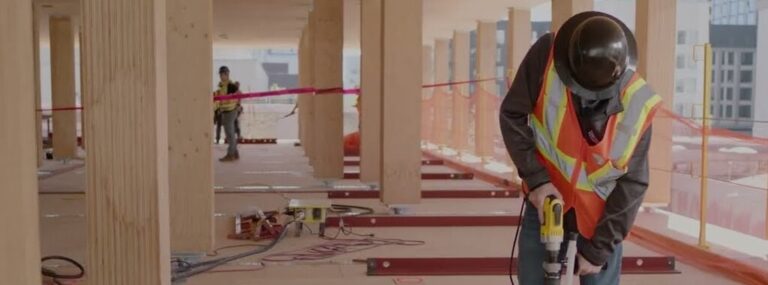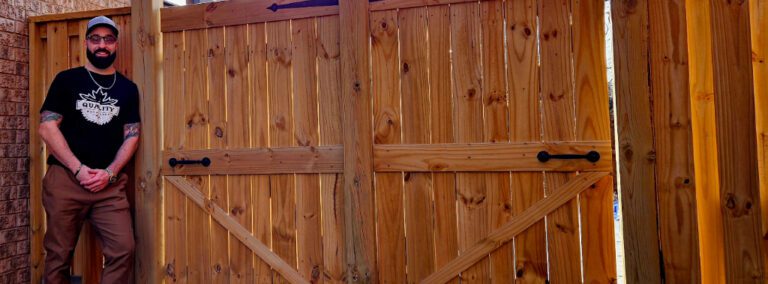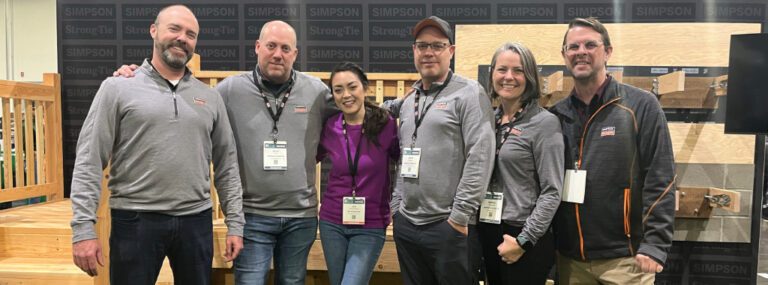1. Mentoring
According to the National Mentoring Partnership, a nonprofit organization whose mission is to improve the quality and quantity of mentoring relationships for America’s youth, one in three young people will be without a mentor qualified to guide their personal growth and their career development, or to connect them with valuable opportunities along the way.
At their core, Outreach Coordinators like Jim Mattison, Alan Hanson and Rick Reid are mentors. With decades of combined experience — much of it at Simpson Strong-Tie — they’ve been through nearly every up and down that comes with being a construction professional in what sometimes can be an underappreciated field. This knowledge serves the students they interact with, whether it’s by suggesting possible research interests, advising them on a rewarding career path at a job fair, helping them conduct an employment search, or putting heads together with them on how to solve a particularly challenging project.
2. Networking
With a glut of advanced degrees and professional certifications being conferred these days, plus a proliferation of new educational avenues like online learning available, there are more qualified jobseekers than ever out there. So it’s no longer just what you knowthat makes a difference in building a career. Now, perhaps more than ever, it’s who you knowthat may pay the biggest dividends over the long run.
In the days before unrestricted connectivity, we used to have these things called rolodexes. They contained important contact information for all our professional acquaintances. Back then, we actually had to pick up the phone or take the time to write a handwritten letter to get in touch with someone. Nowadays, though, when we’re all so connected via e-mail, text messages, and social media like LinkedIn, it’s a lot easier to build and grow a professional network; the power to keep up is increasingly in our own hands.
“Making connections is essential to not only entering, but advancing in the industry,” said Jim Mattison, Outreach Coordinator for Simpson Strong-Tie. “We work to help students and young professionals discover ways in which they can connect, and even introduce them to industry experts and influencers to help begin this important step.”
3. Professional Organizations
A great way for young professionals and graduating students to grow their networks and actively participate in their field is to get involved with a professional organization. Not only does membership entail valuable connections to other industry pros, but organizations also often provide hands-on learning opportunities and professional certifications that look great on a resume. Simpson Strong-Tie works with many of the nation’s top organizations, including the National Association of Home Builders and the Structural Engineers Association and their various local branches,to host events, provide educational and training opportunities and more.
“Joining an organization not only benefits the young professional, but it really helps to drive the industry as a whole,” said Rick Reid, Outreach Coordinator at Simpson Strong-Tie. “Whether it’s guiding research, generating important conversations or advocating for the industry as a whole, the combined knowledge and resources that these groups offer are endless and nearly immeasurable.”
4. Events
Events are another great way to connect with young people. “The thing we enjoy most about working with the next generation is getting out of the office with them. Anyone can send an email and a few product samples. We focus on making connections in person with students and faculty,” said Alan Hanson, Outreach Coordinator at Simpson Strong-Tie.
One great example of the events Simpson Strong-Tie participates in is the Building Connections Symposium at Washington State University. As part of the continued collaboration between the University and Simpson Strong-Tie, which includes sponsoring faculty fellowships and industry research, company representatives hold a hands-on workshop with 50 engineering, construction, and architecture students at the new Simpson Strong-Tie Research and Testing Laboratory on campus. “From product installations and testing to industry speakers, we love working with upcoming professionals to build structures with innovative materials and rigorous testing methods,” added Mattison.
5. Projects
Hands-on learning is often the best type of learning when it comes to the construction industry. Throughout each year, Simpson Strong-Tie works with organizations and schools to sponsor built projects. For several years, the company’s manufacturing branches have sponsored schools and teams participating in the U.S. Department of Energy’s Solar Decathlon. The collegiate competition pits more than 10 schools against each other to design and build a full-sized, solar-powered home. The intense project has teams working on their innovative houses for years, culminating in a judging process that evaluates cost-effective design, innovation balanced with market potential, water and energy efficiency, energy production and time-of-use energy, and communication strategies.
Whether it’s interacting with students interested in the construction and engineering fields or working alongside young professionals to help them build a high-performance home, all of us in the construction industry can benefit from working better together to attract fresh talent who can help us develop smarter building solutions that ultimately lead to safer, stronger structures.


